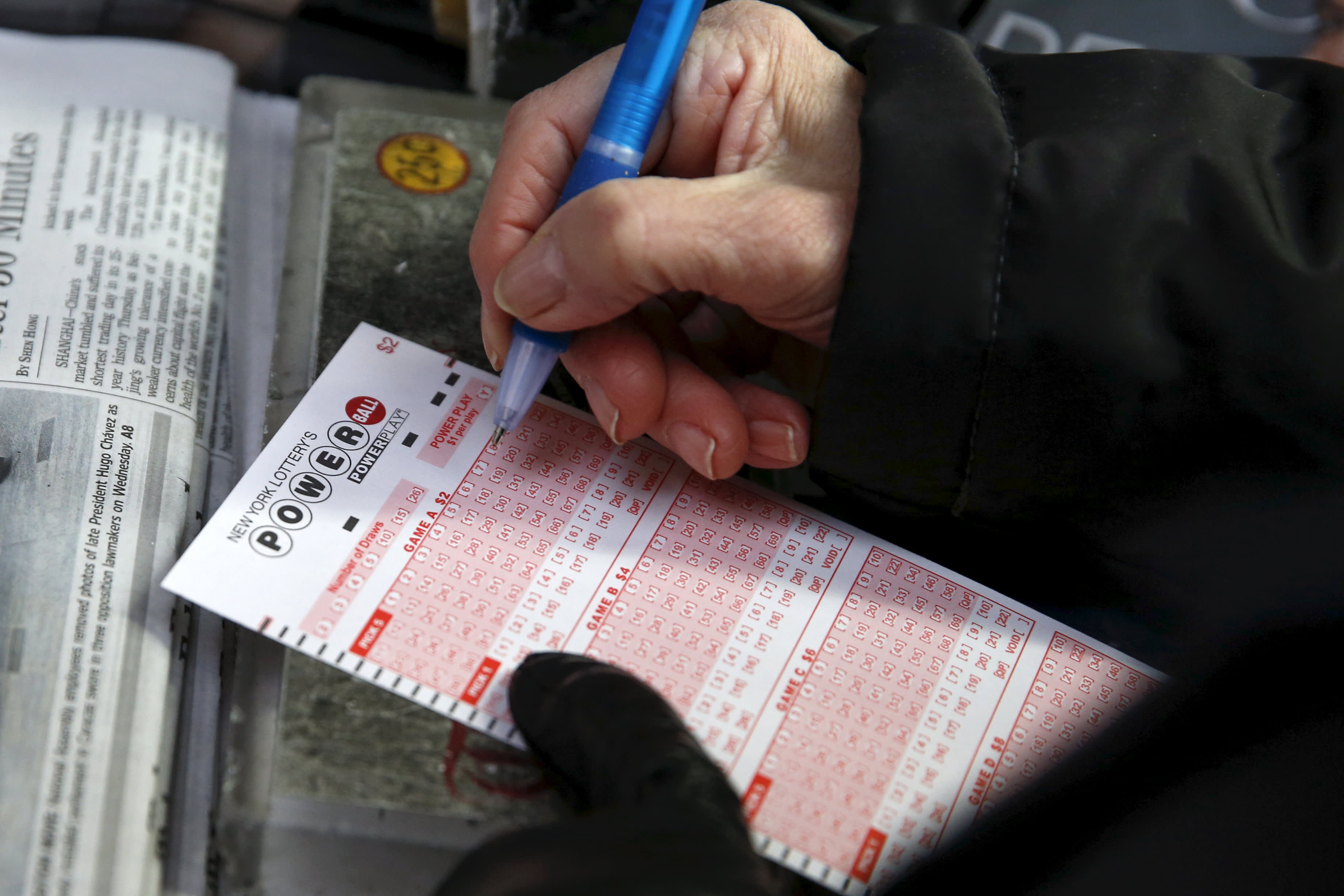If you hit the $296 million Powerball jackpot in Wednesday night’s drawing, remember that good ol’ Uncle Sam will be celebrating alongside you.
The top prize has been climbing for more than two months through twice-weekly drawings with no one matching all six numbers. And while the odds are stacked against snagging the jackpot — your chance is about 1 in 302 million — the IRS always gets a piece of large lottery wins.
Whether you choose to claim your winnings as an annuity spread across three decades or as an immediate, reduced lump sum, 24% is withheld for federal taxes. However, the current top marginal rate of 37% would mean owing a lot more.
A woman fills out a ticket for the $700 million Powerball lottery draw at Times Square in the Manhattan borough of New York.
Shannon Stapleton | Reuters
“There is still a sizable tax bill coming, for sure,” said April Walker, lead manager for tax practice and ethics at the American Institute of CPAs. “Winners have to plan for any additional amount that will be due … to the IRS and the state.”
For Wednesday night’s $296 million jackpot drawing, the cash option — which most winners go with — is $201.6 million. The 24% federal withholding would reduce that amount by $48.4 million, leaving you with $153.2 million.
Assuming you had no reductions to your taxable income — such as large charitable contributions — another 13%, or $26.2 million, would be due to the IRS at tax time (which would be April 2021 for jackpots claimed in 2020).
That would be $74.6 million in all going to Uncle Sam, leaving you with a cool $127 million.
However, state or local taxes would be on top of that. Those levies range from zero to more than 8%, depending on where the ticket was purchased and where the winner lives. In other words, you could end up paying more than 45% in taxes.
And, like the federal withholding rate on jackpot wins, the amount withheld for state taxes might also be less than what you’ll owe.
“They might withhold at, say, 5%, but the rate you pay might be 6%,” Walker said.
There are ways to reduce the amount of winnings that gets taxed, although not many.
The charitably inclined can lower their taxable income by making a cash donation of up to 60% of their adjusted gross income and carry forward, up to five years, any excess amount.
